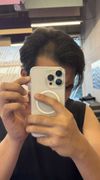community On Fin 5 days a week and dut twice a week and still rapidly losing hair. HOW?? 9 months on fin!
A user using finasteride and dutasteride to treat hair loss, but still losing hair rapidly after stopping minoxidil. Replies suggest that the user should try oral minoxidil or switch to dutasteride for better results.
